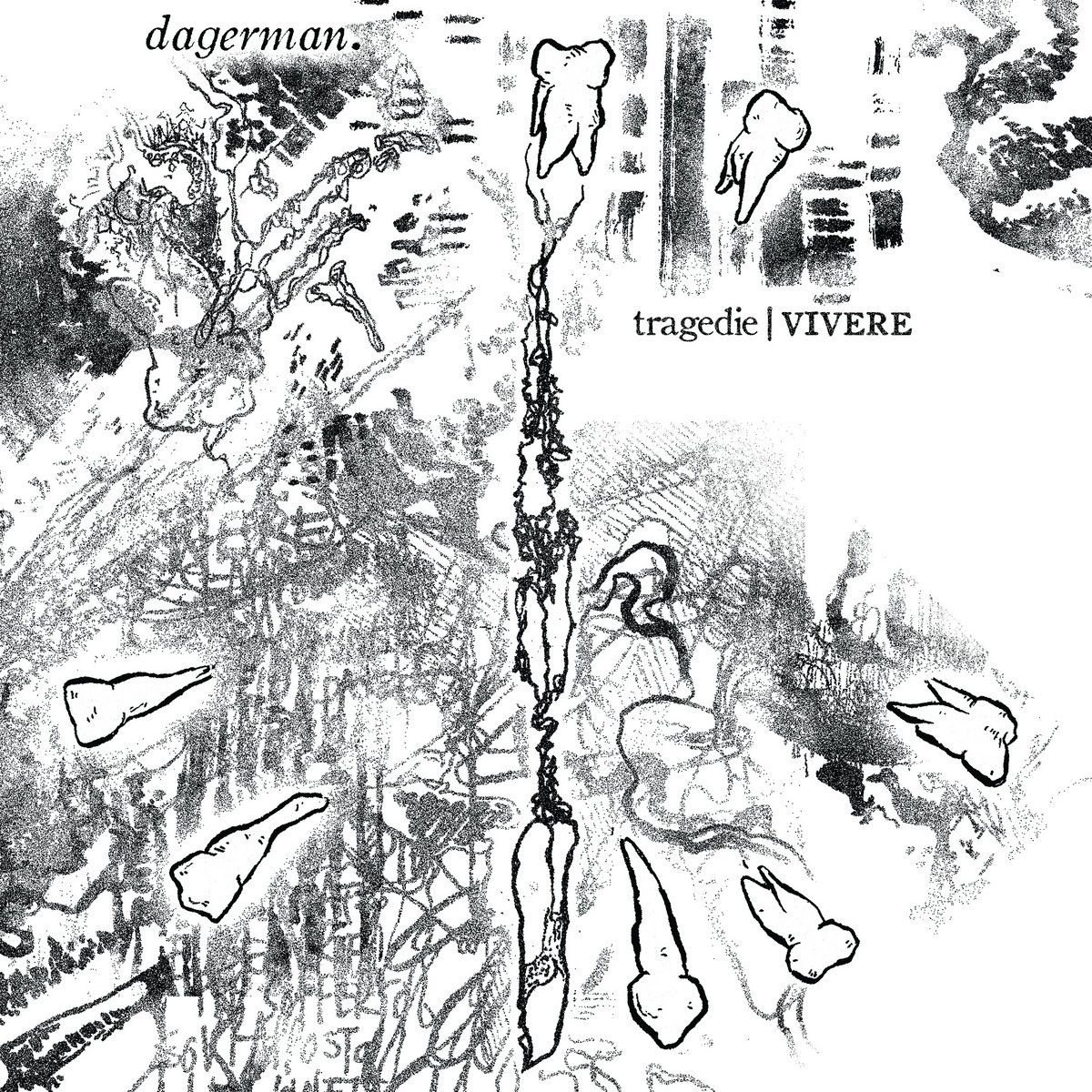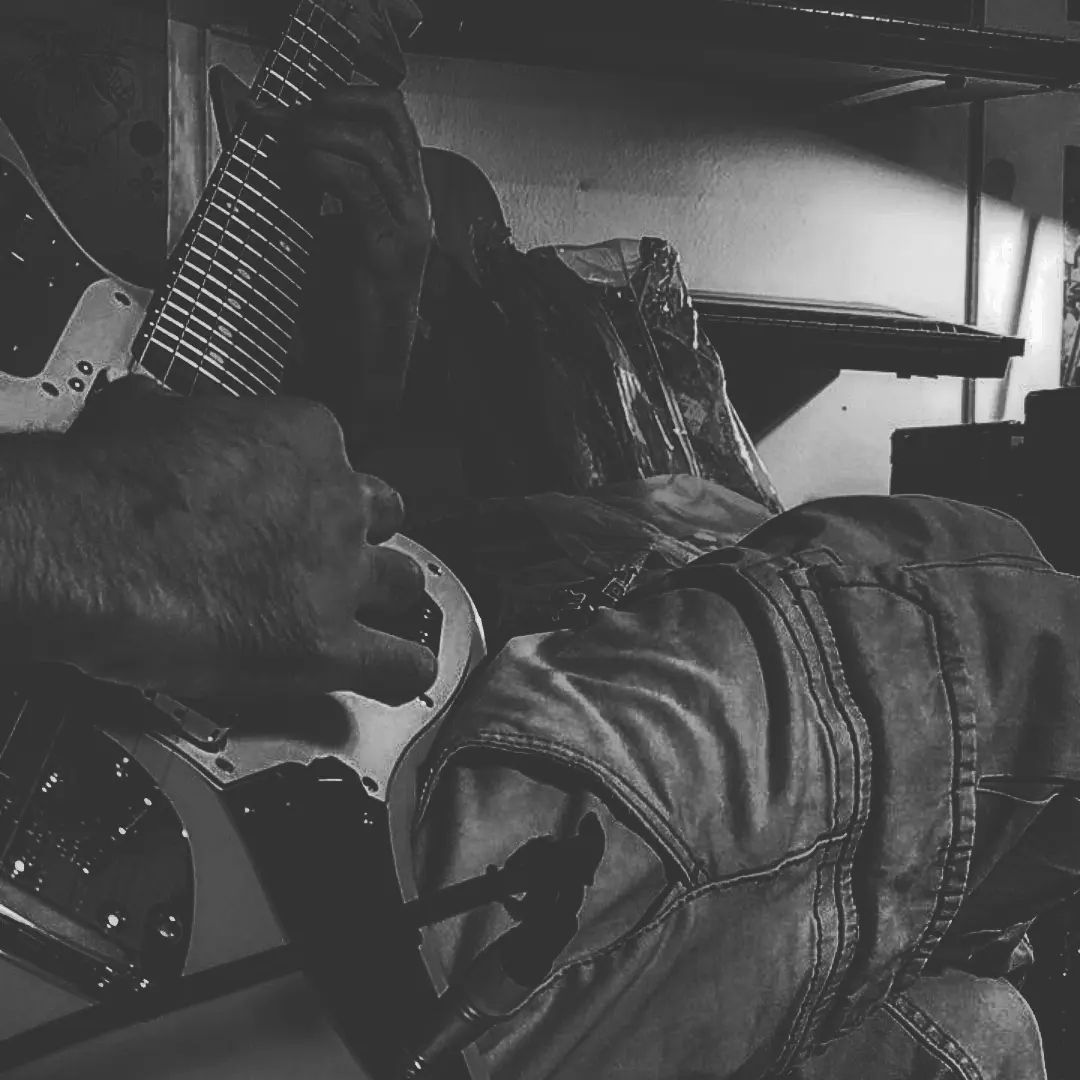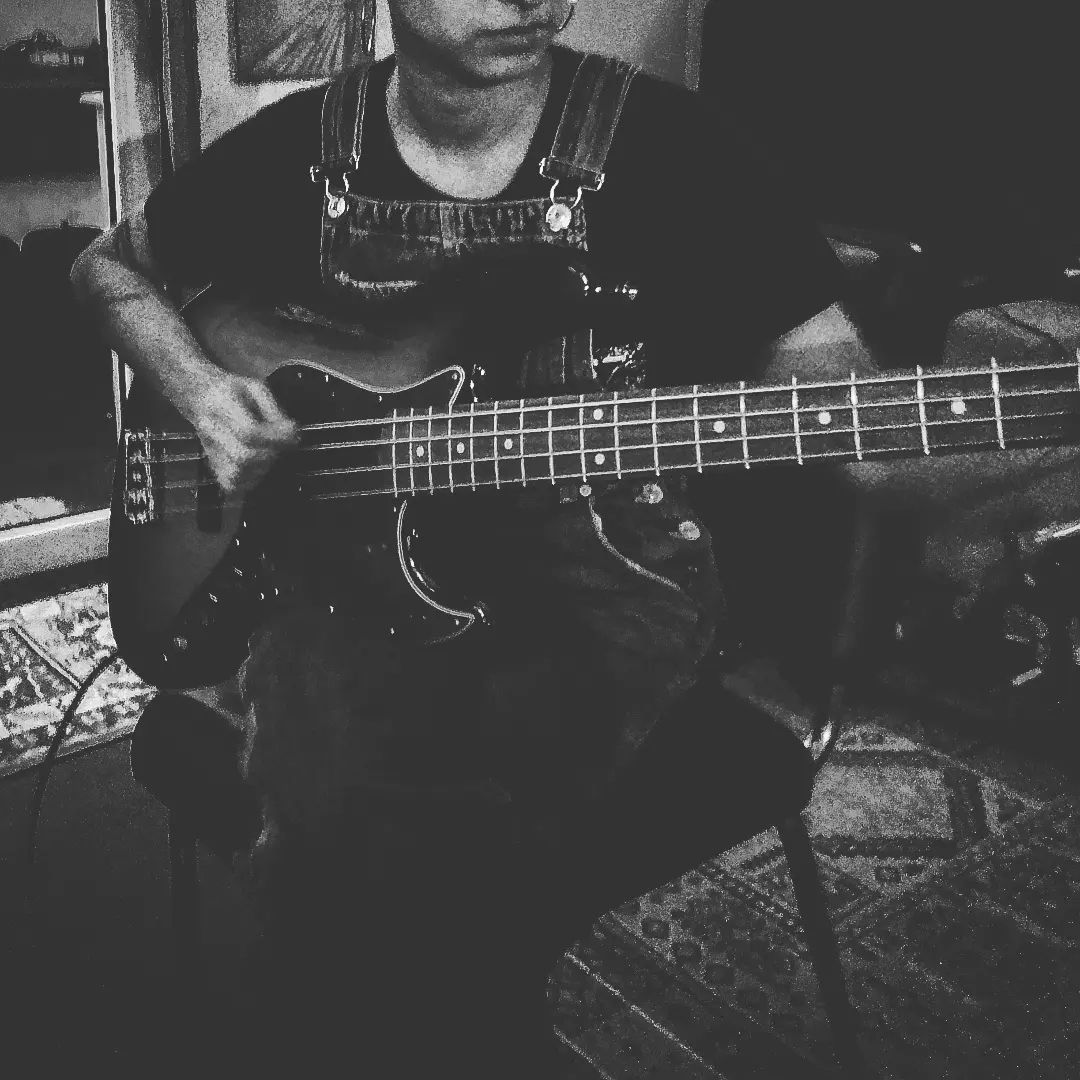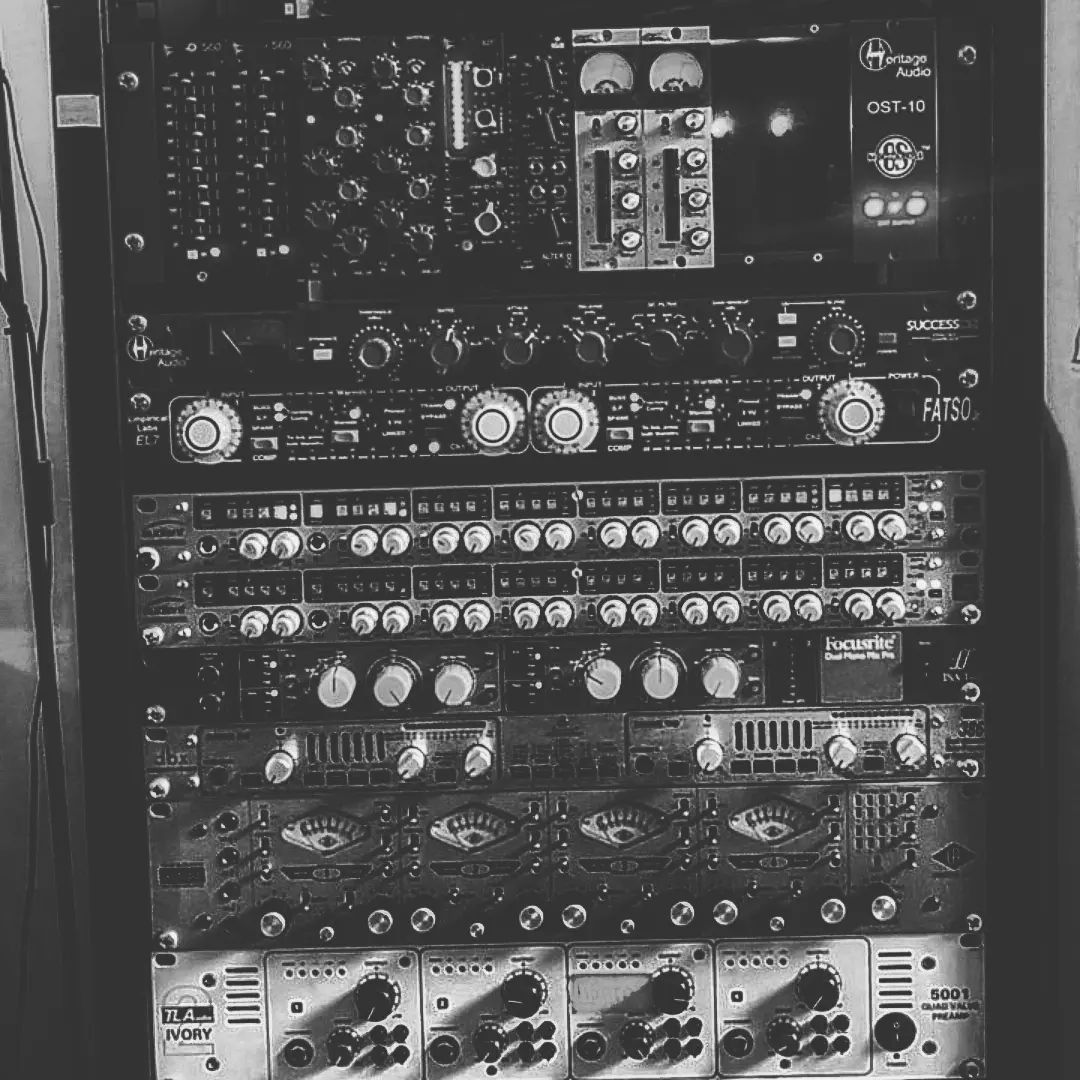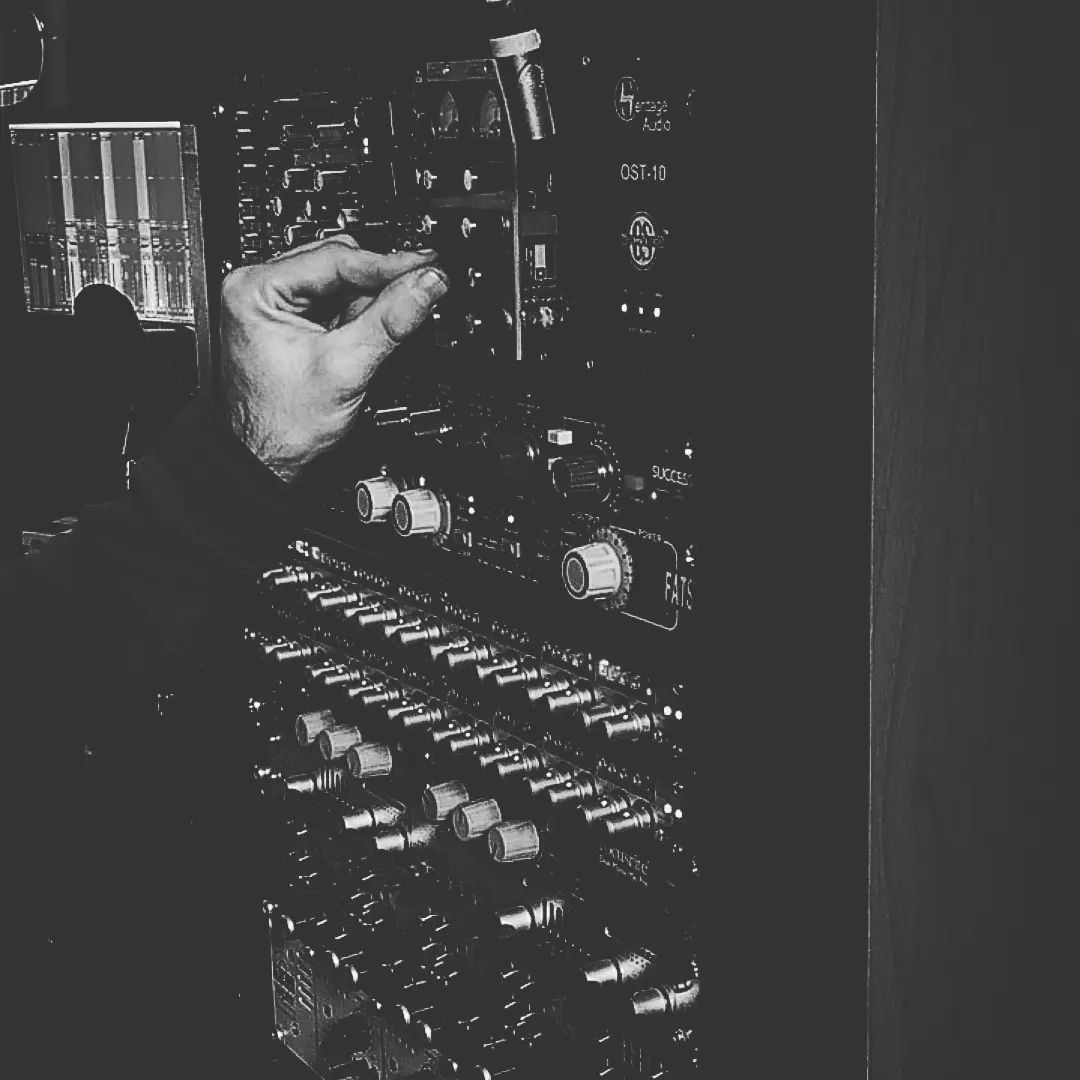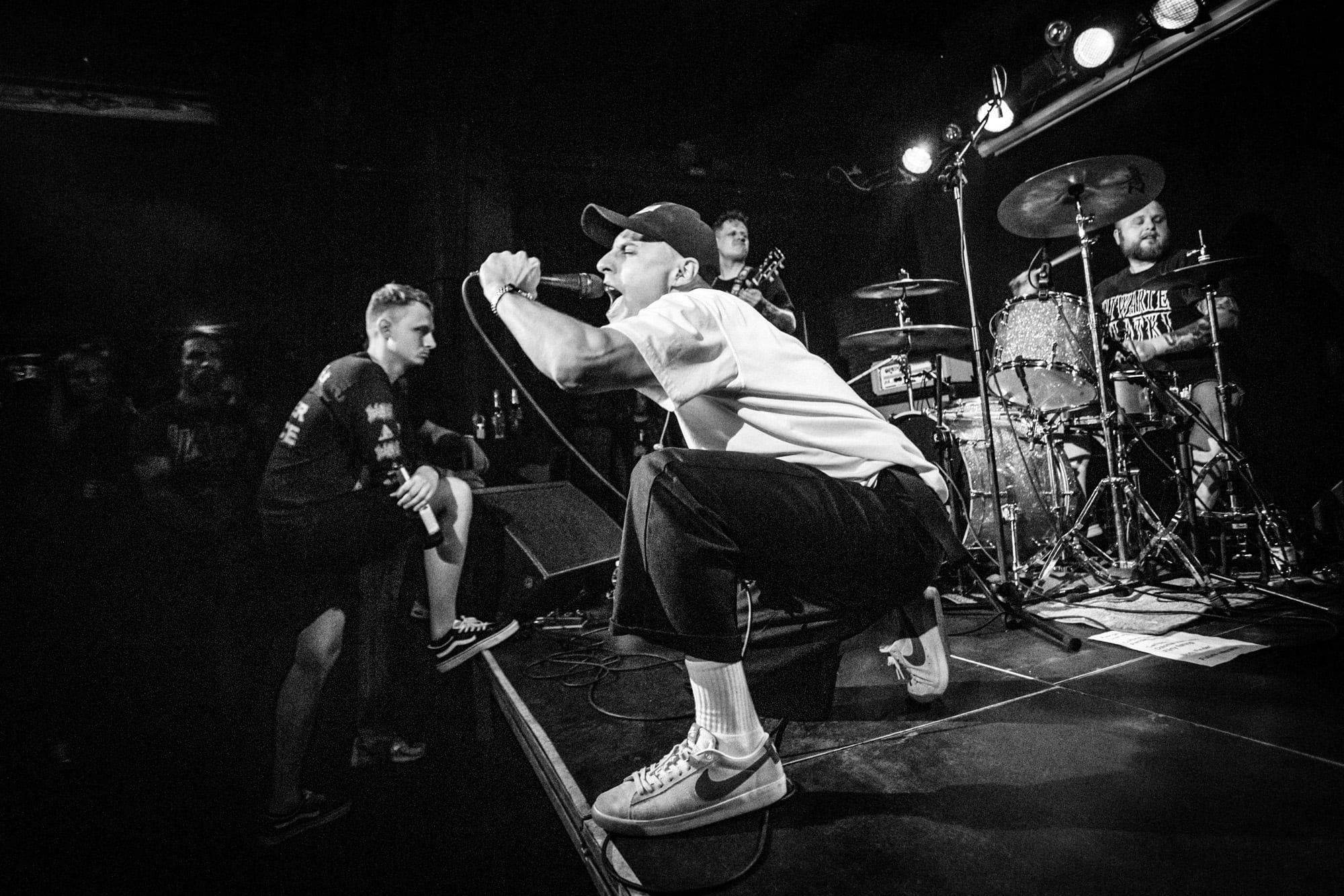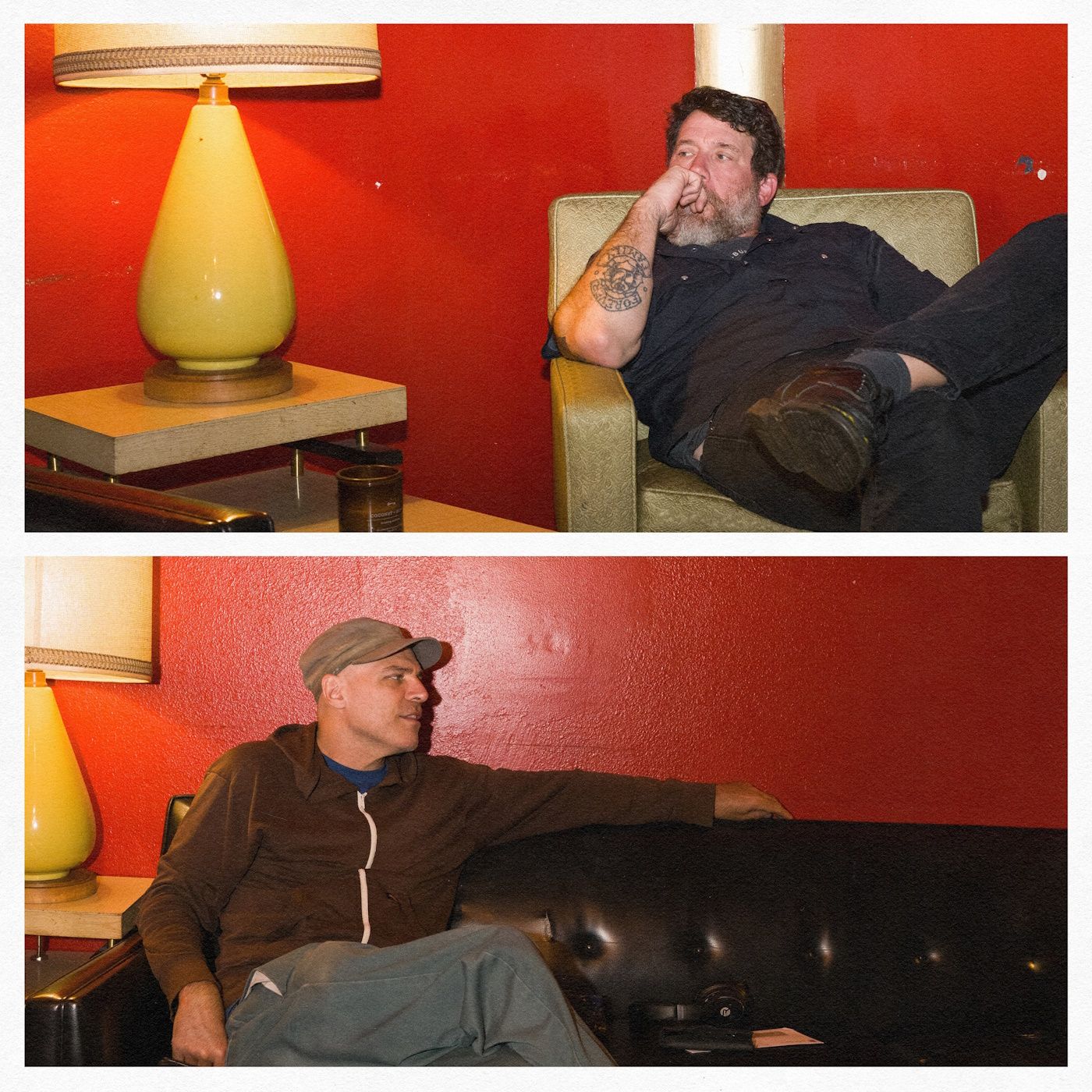Italy’s underground screamo has seen its share of reinvention (think Chivala, Votto, Konoha, Morningviews, Stormo, and dozens more) and Dagerman. emerges from Milan with a sound built on the weight of their surroundings and the resilience of occupied spaces.
Formed just six months ago in the depths of COX18, Milan’s long-standing occupied social center, Dagerman. ties their work to a raw reflection of life in a system that grinds relentlessly.
The band is a collective effort from Pelle, Piotr, Gri, Bruna, and Ricky. They’re not new to Italy’s punk scene—Pelle comes from the defunct Zona D’Ombra, Gri came from Eucaristia and Piotr plays in Put Púrana. Pelle and Ricky are part of the COX18 collective, all the other members being involved in putting up shows.
But where COX18 stands as a physical site of resistance, Dagerman. channels it into a sonic force. Drawing from post-hardcore and screamo influences—Mihai Edrish, Frail Body, and Daïtro among them—they set out to explore tragedy in a system where every small misery is overshadowed by larger ones, with each song chipping away at the seemingly mundane, yet brutal, realities of modern life.
Dagerman. rejects the idea of simple protest anthems. Their lyrics lean into existential musings and literary reflections. Named for Swedish writer Stig Dagerman, the band pulls on threads from European thinkers like Pratolini, Beckett, and Pavese. Every line is crafted to evoke, not dictate, leaving room for listeners to wrestle with their own interpretations.
They don’t embellish the sound either—no click tracks, no studio tricks, just the raw, unpolished output of five musicians. The entire album, recorded by Pelle in a direct and unfiltered process, brings out the grit that defines their music.
The thematic undercurrent of their debut, Tragedie | Vivere, sits on the shoulders of “minor tragedies”—not the loud ones, but the kind that go unnoticed, etched into the bones of daily life.
There’s “luogo | progettare,” dissecting the urban reality that, in the modern age, reduces people to workers and consumers in a city built more for commerce than for living. There’s the relentless drive of “inquietudine | sublimare,” the agitation that keeps the so-called revolutionaries from succumbing to complacency, a drive fueled by necessity rather than ideology.
On “oggetto | produrre,” Dagerman. examines the futility of living within capitalism, where human life shrinks to production and consumption. Here, “leisure” is just an illusory release, another product to be consumed. The quiet resignation of “attesa | esistere” digs deeper into this passivity, lamenting a world bound to clocks and routine, where existence itself becomes a rhythm, and dreams die silent deaths.
View this post on Instagram
The band’s artwork, crafted by Gri, mirrors this vision with harsh minimalism—teeth, blades, and collages from old sketches. Gri’s visual choices reflect both suffering and defiance, embodying the tension between survival and self-destruction, where each track acts as a pulse in this fractured existence.
This record is not for escapism; Dagerman. isn’t here to provide relief but rather to hold a mirror up to a bleak and relentless reality. They play for those who still question, who refuse to find comfort in simple answers.
For a band so young, their commitment to peeling back the layers of this reality, from the isolation of “equazione | amare” to the ceaseless questions of “domande | finire,” stands as both a statement and a challenge. To hear Dagerman. is to enter a space where the personal and the political become indistinguishable, where the greatest tragedy might just be the unexamined life.
Here’s the full track by track commentary by the band.
place | PLAN
In the postmodern era, the shape of the city is in constant flux, evolving increasingly to facilitate the flow of goods—both human (as workers and consumers) and otherwise. Life within it grows ever more hollow, with humanity splintered into isolated atoms. Wealth inequality grows stark.
Yet, even now, various forms of resistance against this model persist, fueled either by material conditions or by the existential need to engage with one’s surroundings in a communal way rather than alone, striving to upend the roles of producer and consumer. Despite police evictions and abuses, occupation remains a powerful form of active resistance, a way not to be crushed by the world around us.
unease | SUBLIMATE
A necessary tribute to that tension driving every so-called revolutionary to move, never to stay still or calm. This tension isn’t based on calculation or faith but arises from the knowledge that life, in any other way, is impossible for them.
object | PRODUCE
Living within capitalism forces everyone into the role of producer and consumer. For most, escape feels impossible. In this way, people debase themselves, surrendering their life force and creativity in service of a voluntary slavery, which they can later discharge—still following the same profit-driven, consumptive logic—through the fabricated enjoyment of so-called “leisure time.”
waiting | EXIST
Waiting as hope. A deadly hope, shaped by the inability to determine one’s life. Surrender to an existence structured by schedules, duties, and imposed values: work, family, well-being, peace (in a world at war), stability, security. Slowly, every spark of vitality fades.
When a dream dies, the person dies with it. And the most terrible thing is to stand still, waiting for everything to change, standing still and waiting without even knowing why or even remembering anymore.
nothing | TO HAVE
How, in life, we fill ourselves with things. Things. Things. We fill our hands, mouths, and minds with objects, ideas, words. Everything to emphasize possession—mine, yours—or an identity: I am what I have; what I have is me, defining me. Until the end, to realize that we had nothing.
direction | TO OPPOSE
When even the boldest and most radical souls throw in the towel. Out of exhaustion, loss of conviction, or because, over time, power doesn’t just break you—it bends you. Fear of perishing, of insecurity, or of prison. Maybe it turns out we were never so convinced, or that these ideas no longer mean anything because today, perhaps, there’s too much to lose.
Yet, the weight of a life is in living and practicing these ideas, regardless of what comes after. What has been remains. This flame, though faint, never dies; some people leave, some sell out, but there are always those who arrive and those who stay.
equation | TO LOVE
Few words. Just a reminder that the concept of family does not always conceal love, care, and togetherness. Often, we take certain structures for granted. But if these structures are molded by a terrifying society, how can they truly be infallible?
After negative experiences with their parental figures, more and more people grow up with unresolved gaps inside, making it difficult for them to engage in healthy, sincere, and enriching relationships with others.
questions | TO END
This record is filled with statements, with answers. But don’t they follow a thousand questions? This piece is for those who haven’t found peace, who risked drowning in their own questions in search of or waiting for answers.
Many have put an end to those thousands of questions. Many others have tried to unravel the concept of love and harmony. As Stig Dagerman himself said, “If planets could love, they would leave their orbits, and it would be chaos. The order of the universe is assured because love is impossible.”
For loads of other screamo and post hardcore releases, be sure to check out our ever growing mega playlist HERE:



